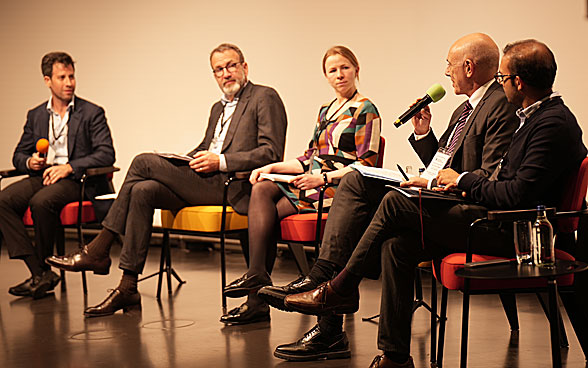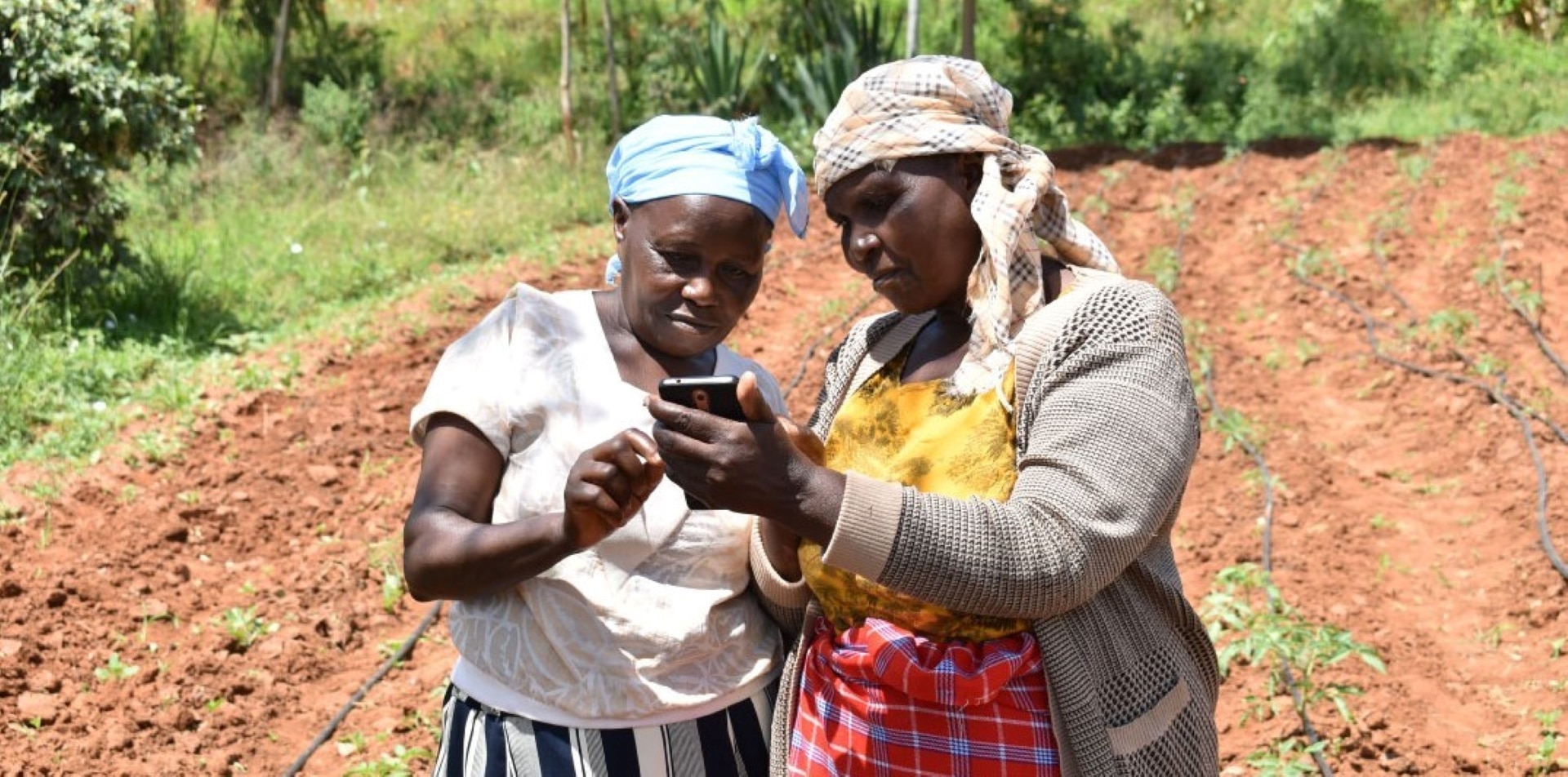Tying Payments to Results: The Swiss Experience in Results Based Finance
To improve aid effectiveness, international development funding is increasingly shifting from traditional input-based methods to results-based approaches. Switzerland is a frontrunner in this movement, as shown by a recently conducted review which found a rich and diverse body of 51 Results Based Financing (RBF) experiences by SDC and SECO. Read on to learn more about this effective yet still underutilized tool and the promising results of the review.
RBF conditions a portion of program funding to measurable results. RBF incentivizes all actors to maximize the results that matter, fosters a culture of performance, and generates evidence of impact. When well-designed, RBF has been shown to improve social outcomes significantly.
Since the early 2000s, RBF funding has seen substantial growth, rising from $1 billion in 2007 to over $26.5 billion in 2017 globally, particularly in sectors like health, education and employment, as well as energy. This growth has been led by progressive bilateral donors and multilateral development institutions at the forefront of this movement. These frontrunners include the State Secretariat of Economic Affairs (SECO) and the Swiss Agency for Development and Cooperation (SDC). A review conducted with the support of Instiglio found 51 cases in which one of the two organizations applied RBF to incentivize both private and public sector actors across a wide range of sectors and geographies.
When engaging with the private sector, SDC and SECO have championed the use of RBF to incentivize private actors to innovate and deliver higher quality services and programs.
An interesting example of an RBF scheme aimed at the private sector is Impact-linked Finance (ILF). Co-developed by SDC and its partner Roots of Impact, ILF is a suite of financial instruments that align impact performance and investability of impact-oriented private enterprises by rewarding the positive social impacts they generate. As an innovative blended finance approach that utilises public funds to catalyse private investment in underserved markets, the concept aligns the interest of three groups: impact enterprises, donors, as well as investors. Enterprises benefit from additional revenues which improve their profitability and attract investments to scale their operations, allowing them to further expand their social impact. For donors and implementers, ILF combines the advantages of an RBF approach (paying for results, not inputs) and helps to leverage private sector investments.
From 2019 to 2022, an ILF program was piloted in the energy sector in Kenya. Two providers of electrical home appliances, clean cooking stoves and productive use energy appliances based on solar energy, were incentivized to scale up operations with a social impact and reach customers which otherwise would not have been served. The impact enterprises received premium payment for social outcomes measured with impact indicators such as percentage of customers below poverty line, percentage of customers reporting first access to energy product or service, and percentage of customers seeing an improvement in quality of life. This pilot program had a strong learning component, including a dedicated Lessons Learnt Report.
Another example of RBF used to incentivize the private sector can be found in Colombia. Together with the Colombian government and the Inter-American Development Bank Lab (IDB Lab), SECO successfully applied RBF through the Employability Social Impact Bond Program. Private investors offered upfront capital to service providers for technical skills training, psychosocial support, and intermediation with employers to integrate vulnerable unemployed individuals into the labor market. The IDB, SECO and the Colombian government paid only for results achieved, such as job placement and retention after 3 and 6 months. This incentive model changed the mindset of the service providers, shifting their attention toward achieving longer-term results, and helped the development of an ecosystem of service providers that continuously innovate and improve their services. Capacity building and policy support were foreseen by the Colombian government in order to overcome regulatory and market barriers. After a second Employability Social Impact Bond, the Colombian government established its own Colombia Outcomes Fund and thereby institutionalized RBF and expanded it to different public entities.

On the public sector side, SDC and SECO have utilized RBF with subnational governments to support high-quality decentralization, promote stronger local governance, and advance institutional reform efforts with a greater focus on results.
In Ghana, for example, SECO participates in Ghana’s Multi-Donor Budget Support Framework in which the RBF instrument Performance-Based Grants are used to support decentralization reforms that strengthen local governments. This is how it works: The Government of Ghana reserves 5% of the national GDP to support decentralization efforts. 10% of this budget is used for performance-based financial transfers to districts. Different indicators such as public financial management, service delivery (including gender and social protection services), transparency and accountability, etc. are evaluated and rated by independent auditors during the annual quality review. Based on this rating, the performance-based financial transfers are distributed among the 261 districts, thus incentivising them to improve in the evaluated areas. Districts have financed 2,681 infrastructure projects for local service delivery from performance-based transfer funds since 2019. Key to the success of such a project is the integrity of the performance review of municipalities, the accountability processes at the municipal level, and the empowerment of the local population to demand what they need.
Another example of the use of RBF instruments is the Performance-Based Grants of the SDC municipal development project in Eastern Serbia. In Serbia, tax culture is weak and a lot of property taxes are not collected. This is where SDC jumps in as an outcomes funder by awarding payments to the 5 municipalities that improve their property tax collection the most. This way, municipalities’ income from the property tax increased by 50% between 2013 and 2014 alone. The Swiss investment of CHF 1.33 Million generated CHF 2.8 Million of new revenue for the municipalities, only in the project's first two years. Additionally, SDC’s Incentive Fund created momentum for institutional and legal reforms in Eastern Serbia, which have improved financial sustainability for municipalities that are expected to last beyond the project’s timeline. A key learning from this experience is that flexibility during implementation is key to the project’s success as the incentive schemes may need to be adapted frequently to respond to changes in the law or to the new political realities.
Across all these experiences, SDC and SECO staff observed that RBF has consistently:
- promoted a stronger focus on results in program planning and implementation,
- introduced greater accountability and incentives to achieve results,
- stimulated innovation by providing greater flexibility to implementing partners to adapt activities to the local context, and
- produced stronger data systems and local evidence base regarding what works.
Looking ahead, RBF is expected to continue growing, in sectors addressing urgent global public goods such as climate, migration, and pandemic preparedness. As a trusted yet still under-utilized tool for aid effectiveness, RBF holds promise for driving impactful development outcomes in the years to come. The Swiss international cooperation aims to further institutionalize RBF in its own organizations and scale proven concepts as the ones described above in its partner countries. At a global level, it will also build a future pipeline of new RBF projects through the Outcomes Accelerator , or the scaling up of impact-linked finance, as well as engage in sharing best practices and support standardization efforts of RBF e.g., through the OECD or the negotiations at the UN about a new Financing for Development Framework.


